by Andrea Carson | Sep 13, 2023 | Finances
Managing your money effectively has become more crucial in an increasingly complex financial landscape. Thankfully, technology has kept pace with this demand, offering powerful money management tools to help you take control of your finances. Whether you’re tracking expenses, creating budgets, or planning for your financial future, the best money management tools of 2023 have got you covered. In this blog, we’ll explore some of the top tools that can empower you to make informed financial decisions and achieve your goals.
1. **Mint**
Mint has been a staple in the world of personal finance for years, and its continued relevance in 2023 is a testament to its effectiveness. Mint offers a comprehensive overview of your financial life by syncing with your bank accounts, credit cards, and other financial accounts. It tracks your income, expenses, and investments and provides insights into your spending habits. With customizable budgeting features and bill-tracking capabilities, Mint helps you stay on top of your financial commitments and save money.
2. **You Need A Budget (YNAB)**
YNAB takes budgeting to the next level by adopting a unique philosophy that encourages users to “give every dollar a job.” This zero-based budgeting approach ensures that every dollar you earn has a purpose, whether for bills, savings, or discretionary spending. YNAB’s user-friendly interface and mobile app enable you to track your spending in real-time, adjust your budget as needed, and achieve your financial goals with intention.
3. **Personal Capital**
For those focused on long-term financial planning and investment management, Personal Capital is a top choice. This tool offers a holistic view of your financial portfolio, including investments, retirement accounts, and assets. It provides insights into your net worth, investment performance, and retirement readiness. Personal Capital’s retirement planner tool lets you model different scenarios to ensure a comfortable retirement. It’s an ideal choice for investors looking to make data-driven decisions.
4. **PocketGuard**
PocketGuard is designed with simplicity in mind, making it an excellent choice for users who want a straightforward way to manage their money. By linking your financial accounts, PocketGuard automatically categorizes your transactions, tracks your income and spending, and offers personalized budgeting recommendations. Its unique feature, “In My Pocket,” shows you how much money you have left after accounting for bills and savings, giving you a clear picture of your disposable income.
5. **Wally**
Wally offers a seamless expense tracking experience, allowing you to capture receipts, categorize spending, and set savings goals effortlessly. Its intuitive interface makes it easy to visualize your spending patterns and identify areas where you can cut back. Wally also offers a feature for splitting expenses with friends and family, making it a great tool for social outings without financial confusion.
6. **Simplifi by Quicken**
Simplifi is a robust money management tool that provides a comprehensive view of your finances, all while simplifying complex tasks. With features like expense tracking, bill management, and customized budgeting, Simplifi aims to streamline your financial life. Its ability to track both personal and business finances in one place sets it apart for entrepreneurs and freelancers.
Conclusion
In 2023, managing your money has never been easier, thanks to an array of sophisticated money management tools at your disposal. Whether you’re tracking daily expenses, planning for retirement, or striving to achieve your financial goals, these tools can empower you with insights, organization, and control. Remember that the best tool for you depends on your unique needs and preferences, so take the time to explore your options and find the one that aligns perfectly with your financial aspirations. With these tools in hand, you’re well on your way to mastering your finances and securing a brighter financial future.

by Andrea Carson | Aug 16, 2023 | Credit Cards
The Pros and Cons of Being an Authorized User on Credit Card Accounts
When it comes to building credit or managing finances, becoming an authorized user on someone else’s credit card account can be an option worth considering. Being an authorized user allows you to benefit from the primary account holder’s credit history and responsible credit behavior. However, like any financial arrangement, there are both pros and cons to consider before becoming an authorized user. In this blog post, we will explore the advantages and disadvantages of being an authorized user on credit card accounts.
Pros:
1. Building or Improving Credit History: As an authorized user, the credit history of the primary account holder can positively impact your credit score. If the primary account holder has a long history of on-time payments and responsible credit usage, it can help boost your creditworthiness.
2. Establishing Credit at an Early Age: Being added as an authorized user can be an excellent way for young adults or those new to credit to begin building their credit history. It can provide them with a head start in establishing a positive credit profile.
3. Faster Credit Score Improvement: If you have a limited or poor credit history, becoming an authorized user on an account with a good credit history can help improve your credit score more quickly than starting from scratch.
4. Access to Credit Card Benefits: As an authorized user, you may enjoy some of the perks and benefits offered by the credit card, such as rewards points, cashback, or travel benefits, without being responsible for managing the account.
5. No Liability for Debt: As an authorized user, you are not legally responsible for the debt incurred on the credit card. If the primary account holder defaults on payments, it won’t directly affect your credit score.
Cons:
1. No Control Over the Account: As an authorized user, you have no control over how the credit card account is managed. If the primary account holder misses payments or racks up debt, it could negatively impact your credit score.
2. Potential Relationship Strain: Adding someone as an authorized user means granting them access to your credit account. If the primary account holder is not responsible with their credit usage, it could create tension in the relationship.
3. Difficulty in Removing Yourself: While the primary account holder can remove you as an authorized user, it may require their cooperation to do so. If they are uncooperative, you may face challenges in detaching yourself from the account.
4. Limited Impact on Credit History: Being an authorized user may not have as significant an impact on your credit history as having accounts in your name. Lenders may consider this when assessing your creditworthiness.
5. Potential Risk of Overspending: If the primary account holder is not financially responsible, they may accumulate a large credit card balance, which could impact their credit and, in turn, affect your credit score as an authorized user.
Conclusion:
Being an authorized user of someone else’s credit card account can be beneficial in certain situations, particularly for individuals looking to build or improve their credit history. It provides an opportunity to piggyback on the credit history of a responsible cardholder. However, there are potential drawbacks, such as a lack of control over the account and the possibility of strained relationships if financial issues arise.
Before becoming an authorized user, discussing the arrangement with the primary account holder and setting clear expectations regarding credit card usage and payment responsibilities is essential. Additionally, continue to be proactive in building your credit independently by opening and managing your credit accounts responsibly. Balancing the benefits and potential risks will help you decide whether being an authorized user is the right choice for your financial journey.

by Andrea Carson | Jul 26, 2023 | Getting Out of Debt
Banking the Smart Way: Tips for Financial Success
Banking is an integral part of our daily lives, and the way we handle our finances can significantly impact our financial well-being. Whether you’re just starting your financial journey or looking to optimize your banking practices, adopting smart banking strategies can lead to greater financial success and security. In this blog, we will explore essential tips for banking the smart way.
1. Choose the Right Bank
Selecting the right bank is the first step towards smart banking. Research various banks and compare their services, fees, and interest rates. Look for a bank that offers convenient online banking options, low or no fees, and a robust mobile app for easy money management. Additionally, consider the bank’s customer service and accessibility to ensure a positive banking experience.
2. Open the Right Accounts
Diversifying your accounts to align with your financial goals is a smart banking practice. At a minimum, have a checking account for everyday expenses and a savings account for emergency funds and short-term goals. Explore options like high-yield savings accounts to earn more interest on your savings and certificates of deposit (CDs) for higher returns on fixed-term investments.
3. Utilize Technology for Money Management
Embrace digital tools and apps to manage your finances efficiently. Many banks offer budgeting and spending tracking features that help you stay on top of your expenses. Additionally, consider using financial apps that consolidate all your accounts, provide budgeting insights, and offer personalized recommendations to optimize your financial decisions.
4. Automate Your Savings
Make saving a habit by setting up automatic transfers from your checking account to your savings account. This ensures that a portion of your income is consistently allocated towards savings before you have a chance to spend it. Automating your savings makes it easier to build an emergency fund or work towards specific financial goals.
5. Monitor Your Accounts Regularly
Stay vigilant about monitoring your bank accounts regularly. Check for any unauthorized transactions or errors and report them immediately to your bank. Regularly reviewing your transactions also helps you track your spending patterns and identify areas where you can cut back and save more.
6. Be Cautious with Overdraft Protection
While overdraft protection can prevent you from incurring overdraft fees, it’s essential to use it judiciously. Opting into overdraft protection means the bank will cover transactions that exceed your available balance, but this service often comes with fees. Instead, focus on maintaining a buffer in your checking account to avoid overdrafts altogether.
7. Minimize Credit Card Usage
Credit cards can be useful for building credit and earning rewards, but they can also lead to overspending and high-interest debt if not used responsibly. Try to limit credit card usage to essential expenses and pay off the full balance each month to avoid interest charges.
8. Stay Informed about Fees and Charges
Banks may charge various fees for services such as ATM withdrawals, account maintenance, and wire transfers. Be aware of the fees associated with your accounts and transactions to avoid unnecessary costs. Some banks may waive certain fees if you meet specific criteria, such as maintaining a minimum balance or setting up direct deposits.
9. Protect Your Personal Information
Security is paramount in smart banking. Protect your personal and banking information from potential fraud and identity theft. Use strong and unique passwords for your online banking accounts, avoid sharing sensitive information over unsecured channels, and be cautious about phishing scams.
10. Educate Yourself about Financial Products
Take the time to educate yourself about different financial products and services. Understand the terms and conditions of your accounts, loans, and investments. Being well-informed empowers you to make wise financial decisions and ensures that you’re getting the most out of your banking relationships.
Conclusion
Banking the smart way is about making informed decisions, embracing technology, and prioritizing financial goals. By choosing the right bank, utilizing digital tools for money management, and automating savings, you can set yourself up for financial success. Stay vigilant about your accounts, minimize unnecessary fees, and protect your personal information to avoid pitfalls and maximize the benefits of smart banking. With these strategies in place, you’ll be well on your way to achieving your financial aspirations and building a secure future.

by Andrea Carson | Jul 5, 2023 | Make Money, SAVE MONEY
Title: Mastering Your Money Matters: A Comprehensive Guide to Financial Success
Introduction
In our fast-paced and ever-changing world, money plays a crucial role in shaping our lives. Whether we like it or not, financial matters are an essential aspect of daily living. From managing expenses to planning for the future, understanding how money works and adopting sound financial practices are key to achieving long-term success and financial security. In this blog, we will explore various aspects of money matters and offer valuable insights to help you take control of your finances and build a solid financial foundation.
1. Understanding Financial Literacy
Financial literacy is the cornerstone of making informed financial decisions. It refers to the ability to comprehend and utilize financial skills effectively. Unfortunately, financial literacy remains an overlooked area in education, leaving many individuals ill-equipped to handle money matters. To improve financial literacy, we must start with the basics, such as budgeting, saving, investing, and debt management.
2. Budgeting: The Foundation of Financial Success
Budgeting is the process of creating a detailed plan for how to allocate your income. A well-structured budget enables you to control spending, save for future goals, and tackle debts. Start by assessing your income and expenses, setting financial goals, and prioritizing essential expenses. Budgeting can help you avoid living paycheck to paycheck and foster a healthier relationship with money.
3. The Power of Saving
Saving money is a crucial habit that can provide a safety net during unforeseen emergencies and pave the way for future financial growth. Implementing a disciplined saving strategy, such as the 50/30/20 rule (50% for necessities, 30% for wants, and 20% for savings), can help you strike a balance between meeting immediate needs and building a nest egg for the future.
4. Debt Management
Debt can become a significant burden, hampering your ability to achieve financial freedom. It is essential to differentiate between “good debt” (investments that can potentially appreciate in value) and “bad debt” (high-interest loans for non-essential items). Prioritize paying off high-interest debts first, and consider consolidating debts if it results in a more manageable repayment plan.
5. Investing Wisely
Investing is an essential component of wealth-building and beating inflation over time. However, it involves risk, and therefore, careful consideration is necessary before committing funds. Diversifying your investments across different asset classes, such as stocks, bonds, real estate, and mutual funds, can help mitigate risk and potentially enhance returns. If you are uncertain about investing, seek guidance from a qualified financial advisor.
6. Building an Emergency Fund
Life is full of unexpected surprises, and having an emergency fund can be a financial lifeline during challenging times. Aim to set aside at least three to six months’ worth of living expenses in a liquid and easily accessible account. This fund can prevent you from falling into debt during emergencies, ensuring financial stability.
7. Retirement Planning: Secure Your Golden Years
Planning for retirement should not be procrastinated. The earlier you start, the more time your money has to grow through compounding. Consider contributing to retirement accounts such as a 401(k) or an Individual Retirement Account (IRA) and take advantage of employer-sponsored plans that offer matching contributions.
8. Insurance: Protecting What Matters
Insurance is an essential aspect of money matters, providing a safety net to protect you and your loved ones from unforeseen circumstances. Health insurance, life insurance, disability insurance, and homeowner’s or renter’s insurance are some of the critical policies you should consider having in place.
9. Avoiding Financial Pitfalls
To achieve financial success, it’s crucial to avoid common pitfalls that can derail your progress. Overspending, living beyond your means, and making impulsive financial decisions can be detrimental to your financial health. Cultivate mindful spending habits and focus on long-term goals rather than short-term gratification.
10. Seeking Professional Advice
If navigating money matters seems overwhelming, don’t hesitate to seek professional advice from financial advisors. An experienced advisor can help you assess your financial situation, set realistic goals, and develop a personalized plan to achieve them. Be sure to choose a reputable advisor who acts in your best interest and is transparent about fees.
Conclusion
Mastering your money matters is an ongoing journey that requires dedication, discipline, and continuous learning. By improving your financial literacy, budgeting effectively, saving diligently, managing debt wisely, investing thoughtfully, and planning for the future, you can attain financial success and peace of mind. Remember that every small step towards financial well-being counts, and with determination, you can build a secure financial future for yourself and your loved ones. So take charge of your money matters today, and embark on a path to financial prosperity!

by Andrea Carson | May 24, 2023 | Finances
One of the great benefits of online banking is automatic bill paying. Your bills are paid automatically on a preset date each month. A checking account or credit card can be used as a payment source. If you struggle to pay your bills on time or can’t find the time to deal with your finances, automatic bill paying is one possible solution.
It’s comforting to know your bills will be handled each month with a minimal amount of effort on your part.
Automatic bill paying has several advantages:
- Your credit score might improve. Many people find that their credit scores improve after a few months of paying bills automatically. Late payments should be a thing of the past, provided you adequately fund your checking account. Late payments are a primary cause of lowered credit scores.
- You’ll save money. Paying your bills on time means a few late charges. It also reduces money spent on checks, envelopes, and stamps. How many times have you been unable to find a stamp at home?
- Automatic bill paying saves time. You won’t need to sit down and make time for bill-paying activities. Though it’s not an excuse to put your bills out of your mind completely, you’ll spend less time and energy worrying about paying them.
- It benefits the environment: no more paper bills, checks, or envelopes. You’ll have less impact on the environment and save a few trees. The mail carrier won’t burn gas to deliver your payments, either.
- Identity theft continues to be a significant issue nationwide. While taking care of business online isn’t foolproof, far more effort is needed to keep your financial information safe. Sending snail mail with your account and credit card numbers available to credit thieves is always a risk. There’s a lower risk of identity theft.
There are many advantages to paying your bills automatically. Unfortunately, there are a few disadvantages, too. Consider both before making a final decision.
Consider the disadvantages of automatic bill paying:
- It can be challenging to stop payments. Automatic payments set up with your bank are usually easy to control. However, automatic payments set up with a credit card or with the merchant can take a lot of work to stop. Be sure to investigate the process for ceasing payments. In many cases, written notification is required.
- Excessive credit card debt. If you’re using a credit card as your auto payment vehicle, you can quickly rack up a lot of debt. Keep your eye on your balance and pay it in full each month.
- The costs can be higher. Most automatic bill paying services are free or very inexpensive. However, some do charge high fees. Some merchants also charge high fees if you want to pay your bills automatically. Be sure the costs are reasonable.
- A need for more awareness. Do you know how much your bills are each month? Can you ensure you have enough money to cover the bill? When your bills are paid automatically, you may lose awareness. Review your bills and your bank account balance regularly.
There are a few disadvantages to auto bill paying, but the benefits outweigh the risks for most. Time and money savings are significant advantages over paying your bills manually.
Maintaining awareness of your bills and the balance of your payment vehicle is crucial. Spend a couple of minutes each week monitoring the situation.
Automatic bill paying can save time and money and improve your credit score. Consider adding this helpful tool to your financial tool belt.





